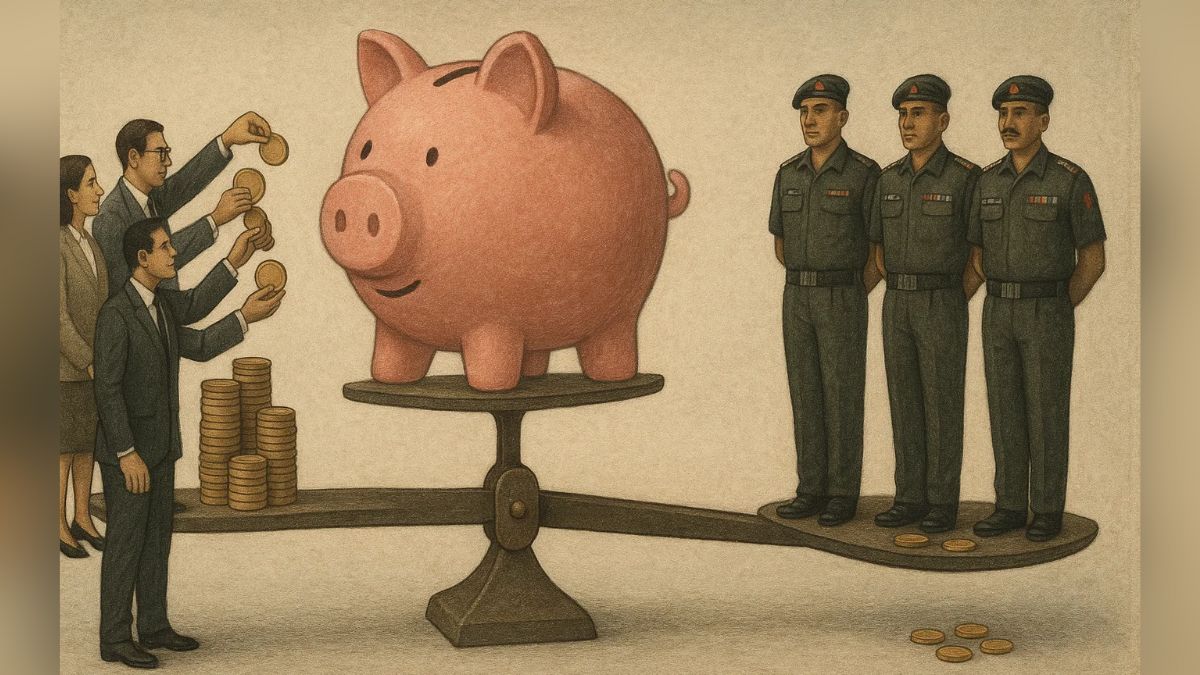India’s Non-Functional Upgrade (NFU) scheme was designed to soften the impact of limited promotions in rigid bureaucracies by guaranteeing that civil servants’ pay and perks keep pace with their batchmates. But for the armed forces, NFU has remained persistently out of reach, creating a deep sense of exclusion that continues to affect morale.
For soldiers and officers who spend decades serving in harsh environments, the denial has become a symbol of inequity. While civil servants enjoy automatic pay progression, those in uniform face a steeper pyramid, fewer promotions and earlier retirement. What is at stake, many in the military argue, is not only financial parity but also the dignity of service.
Why does the pyramid affect soldiers more severely?
The military’s career structure is significantly more unforgiving than that of the civil services. While most Indian Administrative Service officers can expect to rise to the level of Joint Secretary, only about 30% of army officers will ever command a battalion as Colonels. The pyramid narrows further at senior ranks: fewer than one per cent make Major General, compared with near-universal promotion to equivalent levels in civilian cadres.
The difference is accentuated by retirement ages. Military officers retire at 54, six years before their civilian counterparts, with fewer post-retirement avenues. The hard reality is that nearly 70% of those who join in their early twenties never cross the Colonel threshold, not due to performance but due to structural limitations.
What was NFU designed to achieve?
Introduced in 2008 for Group A civil services, NFU was intended to mitigate such bottlenecks. Once one officer of a batch reached a higher rank, others from the same batch were entitled to the same pay within a set timeframe, irrespective of promotion. The mechanism separated career advancement from pay progression, ensuring fairness across cadres.
For the armed forces, NFU would not have changed the pyramid, but it would have ensured officers were not left behind in pay and status compared with their civilian peers. The 7th Central Pay Commission acknowledged the anomaly, with its chair noting the exclusion of the military was a significant inconsistency. Yet despite repeated appeals, including direct intervention by General Bipin Rawat when he was Army Chief, the government rejected the demand in 2016.
Civil services, the Indian Police Service, the Indian Foreign Service and later even the Central Armed Police Forces benefited from NFU, while the military remained outside its ambit. Committees examining pay commission recommendations often did so without military representation, a fact that retired officers such as former Vice Chief of Army Staff Lt Gen Vijay Oberoi cite as evidence of systemic exclusion.
How has denial of NFU affected morale and recruitment?
The consequences of exclusion go beyond pay. Officers see the disparity as a message that their sacrifices count for less. Military service involves unique strains: repeated postings in conflict zones, separation from families, and routine exposure to danger. By contrast, civil service careers carry lower personal risk yet enjoy more assured progression.
This perceived inequity has become a deterrent for new entrants. Talented young Indians weighing civil services against the military see not just the prestige but the career trajectory. Guaranteed elevation to senior ranks in the civil services contrasts sharply with the limited chances in the armed forces, tilting the balance.
Senior officers warn that the denial could harm recruitment and retention at a time when the military already struggles with shortages. For many in uniform, the issue is about parity and dignity, not just monetary benefit. As General Rawat argued, the debate concerns the “gradual degradation of status.” For Oberoi, it reflects a deeper truth: no nation achieves great power status by diminishing its own military.
